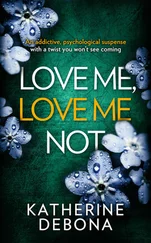My fatigue was a kind of agitation now, I kept opening and closing the book I held unread on my lap. I couldn’t find what I had found in it before, the recovery of something like nobility from the mawkishness of desire, the sense that stray meetings in dark rooms or the shadowy commerce of my own evening could burn with genuine luminosity, rubbing up against the realm of the ideal, ready at an instant to become metaphysics. I set the book aside, seeing that Mitko was tired too, tired and noticeably drunk; he had emptied nearly two-thirds of the bottle we had bought. He was unsteady on his feet when he stood up, having said goodbye to the man in Plovdiv and having announced his intention, finally, to sleep. There were three hours left until we would have to wake, he for his short trip to Plovdiv, a couple of hours on a comfortable bus; and I for a day of teaching, when I would stand before my class wearing a face scrubbed of the eagerness and servility and need it wore as I followed Mitko to the bathroom, standing behind him (he was still naked) as he stood to piss. I rubbed his chest and stomach, lean and taut, the skin of my hands catching just slightly on the bristles of hair; and then, at his words of permission or encouragement, something like Go on, I don’t mind, my hands went lower, and gingerly I took the base of his cock and wrapped my hand around the shaft, feeling beneath my fingers the flow of water, heavy and urgent, and feeling too my own urgency, the hardness I pressed against him. He leaned his head back, pressing his face against mine, rubbing it (it too was stubbled and rough) against the softness of my own, and I felt him harden as he finished pissing, as I carefully skinned him back and shook the last of it, feeling almost suffocated with longing, having never touched anyone in that way before, having never before been of that particular service. Mitko turned to me and kissed me, deeply and searchingly and possessingly, at the same time pushing me backward down the hallway toward the bedroom, pushing me and perhaps also using me for support, to the broad bed where we had lain together earlier and where now we lay down again. He wrapped his arms around me and pulled me close to him, and not just his arms, he wrapped his legs around me too and with all four of his limbs pressed me to him, embracing me so that when I breathed in the air was filtered through him, smelling of alcohol of course but also of his own scent that elicited such an animal response from me, that so fired me up (I imagined the chambers of the brain lighting up, thrown switches in a house). He lay like some marine creature wrapped around me, wrapping around me again if I shifted or half woke, and I slept as I have seldom slept, deeply and almost without disturbance, held like his beloved or his child; or held, I suppose it must be said, like his captive or his prey.
Not long ago I spent a weekend in Blagoevgrad, in the Pirin mountains, chaperoning a group of students to a conference on mathematical linguistics, a field in which I have little interest and no expertise. I had long hours, while they were in lectures, to explore the beautiful wooded park near our hotel, which followed a small river three kilometers or so toward the pedestrian city center, a haven of humane architecture almost untouched by the ravages of Soviet-era construction, though blemished here and there by gaudy new buildings, expensive apartments overlooking the river. It was spring, the asmi were still bare, the wooden trellises built over benches and tables for grapevines to climb, vines that for now were still withered and dry. They clung to their wooden supports, vestiges of winter in a landscape already lush with the turned year. The trees were bright with fresh leaves and with flowers of a sort I had never seen before, blossoms and buds and cones of flowers, a kind of elaborate drunkenness. Our hotel was at the edge of the town, where human habitation made a halfhearted charge farther up the mountains, getting nowhere; just past the hotel’s vigorously mowed lawn there were dense woods and thickets and, farther up, dramatic crags. Even in the park along the river, where I spent my mornings, there was a kind of romantic wildness to the path between the great shorn face of the mountain and the river, which, though small, charged from the peaks with remarkable speed, roaring as it beat against rocks already broken in its bed. As I walked along that path, I felt drawn from myself, elated, struck stupidly good for a moment by the extravagant beauty of the world. The air was thick with movement, butterflies and day moths and also, hanging iridescent in the sun, tiny ephemerae shining and embalmed, pushed helplessly here and there by the light breeze. The grasses and trees were releasing in a great exhalation pods of seeds, the tiny grains each sheltered and propelled by a tuft of hair like a parachute or umbrella. I thought, as I watched this sowing of the earth, of Whitman, whose poems I had just taught to the students who were listening now to their lectures on mathematical linguistics, which they would recount to me over dinner in the town, telling me how they imagined my reactions to the arguments made about poetry and the structures of meter and rhyme, their numerical claims on our pleasure. There were lines in Whitman’s poems that had always struck me as exaggerated in their enthusiasm, their unhinged eroticism; they embarrassed me a little, though my students loved them, greeting them each year with laughter. It was these lines that came to me as I stood on that path in Blagoevgrad, watching seeds come down like snow, that defined and enriched that moment. What were those seeds if not the wind’s soft-tickling genitals, the world’s procreant urge, and I realized I had always read them poorly, the lines I had failed to understand; they weren’t exaggerated at all, they were exact, and for a moment I understood his desire to be naked before the world, his madness, as he says, to be in contact with it. I even felt something of that desire myself, though it was nothing like madness for me, in my life lived almost always beneath the pitch of poetry, a life of inhibition and missed chances, perhaps, but also a bearable life, a life that to some extent I had chosen and continued to choose.
I crossed a small wooden footbridge, stopping briefly to peer at the churning waters and feel their vibration in the structure that held me above them, and found a small café nestled in a bend in the river, on a plot of land the waters had spared. The café was little more than a shack, but clean and well kept; beside it picnic tables were arranged haphazardly by the water. Many of these were taken already, and I had to sit some distance from the river, though I could still hear the water, a sound that has soothed me ever since I was a child. I sipped my cup of coffee and warm milk, looking at the other tables, which were overrun by large, festive groups, and I remembered there was a holiday of some sort that weekend, there are too many here to keep track. Children were playing by the water with balls and sticks and plastic guns emitting light and sound. As I watched them, ignoring the papers I had brought with me to grade, I noticed a younger child, maybe three or four years old, standing apart from the others. She stood at the very edge of the water, and close behind her crouched a man I took to be her father. Again and again, as I watched, this girl, anchored at the waist by the arm of the man behind her, leaned perilously forward (though there was no peril) over the sharp bank, looking down at the water rushing two or three feet beneath her. Repeatedly she leaned forward and repeatedly sprang back, returning to stability with delighted laughter. The fourth or fifth time she did this, she leaned out even farther than before, so that the man had to extend his arm away from his body, almost as far as it would reach. This time she didn’t laugh, as if surprised and maybe unnerved by her own audacity, the risk she took in leaning out so far, which of course wasn’t a risk at all with her father’s arm around her; instead, she threw herself back against her father’s body and, reaching her arms up to clasp his neck, pulled his head down (or maybe she didn’t have to pull it down), embracing it close to her own. Only then did she laugh, with her father’s body folded around her; she laughed with a joy it was difficult for me to recognize, so certain it seemed of a home among the things of the world. They embraced for a long time, a kind of physical contact seldom seen in public, maybe seen only between parents and their very young children, an intimacy confident of absolute possession. Perhaps here, I thought, was a wholly untheatrical embrace. I wasn’t the only one moved, I could see others watching them too, smiling and wistful, maybe a little melancholy, as I was, with the sense both of my own exclusion and of how quickly those embraces would pass. They would take on different meanings as the child grew older, they would become impermissible; the same touch that here warmed our hearts would in just a few years elicit our disapproval, our concern, finally our scorn. And so it is, I thought then, as the man and his child released each other and moved away from the water, so it is that at the very moment we come into full consciousness of ourselves what we experience is leave-taking and a loss we seek the rest of our lives to restore. The man and his child returned to their table, the girl running ahead to a woman who bent to lift her into her lap, tickling her a little so that I heard her laugh over the sound of the water. For a moment at least it seemed plausible, the story I told about the sense of dislocation I so often feel, which was eased for the few hours I slept embraced by Mitko, the embrace I returned to in my thoughts as I watched the child and her father by the river in Blagoevgrad.
Читать дальше












